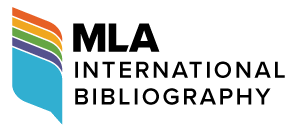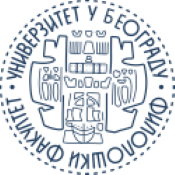An Author Born in Exile: Julio Cortázar between Rayuela and Libro de Manuel
DOI:
https://doi.org/10.18485/beoiber.2024.8.2.4Abstract
Among the writers of the Latin American Boom, Julio Cortázar is generally thought as one who breaks with tradition, imagines a new reader, and creates a new concept of author and the writing process. Against this view, my essay looks into what’s become the commonplace of Cortázar’s figure by reconstructing his career as a writer. Using cultural studies as my framework, I show how he became a writer while in exile, especially thanks to Hopscotch and its major influence on other writers. Since the Argentinian literature of the 1970s requires both an autonomous and a heteronomous perspective, Cortázar's work emerges at a paradigm shift: from an avant-garde time when he still trusts in the possibility of action through words to a time when he turns skeptically to postmodernity. His creation lives at the threshold of confidence and painful skepticism. Cortázar's work is the result of a vast melancholic encyclopedia that emerges at a paradigm shift, a shift that is still ongoing.References
Adorno, Theodor. «El artista como lugarteniente.» Notas para la literatura. Barcelona: Ariel, 1962. 111-122. Impreso.
Bocchino, Adriana A. «Julio Cortázar: del género literario al género discursivo. Otra manera de pensar las cosas.» Casa de las Américas 195 (1994): 29-37. Impreso.
—. Caso Rayuela. Las tramas de un ardid. Mar del Plata: Estanislao Balder, 2001. Impreso.
—. «Sobre lo menor: ¿la distribución como estrategia decisiva?.» Puntos de partida/ Puntos de llegada. Actas III Jornadas de investigación del Departamento de Letras. UNMDP. Adriana Bocchino (coord.). Mar del Plata: Estanislao Balder, 2002. 252-258. Impreso.
—. «Un espejo al fondo del salón.» Orbis Tertius XXVII.36 (2023). Web. 28 May 2024.
Buck Morss, Susan. Origen de la dialéctica negativa. Theodor Adorno, Walter Benjamin y el Instituto de Frankfurt. México: Siglo XXI, 1981. Impreso.
Bürger, Peter. Teoría de la vanguardia. Barcelona: Península, 1987. Impreso.
Cortázar, Julio. «Situación de la novela.» Cuadernos Americanos IX.4 (julio-agosto 1950): 223-243. Impreso.
—. Rayuela. Buenos Aires: Sudamericana, 1963. Impreso.
—. «Palabras/Distancia.» Cortázar lee a Cortázar. Buenos Aires: Laberinto, 1966. Grabación fonográfica.
—. «Carta a Fernández Retamar.» Casa de las Américas 45 (diciembre 1967a): 5-12. Impreso.
—. La vuelta al día en ochenta mundos. México: Siglo XXI, 1967b. Impreso.
—. «Acerca de la situación del intelectual latinoamericano.» Reproducida en “Planta baja”, Último Round. México: Siglo XXI, 1969a. 199-217. Impreso.
—. «Un escritor y su soledad.» Entrevista a J. C. de Rita Guibert. Life 33 (7 de abril de 1969b): 7. Impreso.
—. Prosa del observatorio. Barcelona: Lumen, 1972. Impreso.
—. Libro de Manuel. Buenos Aires: Sudamericana, 1973. Impreso.
—. Cuaderno de Bitácora. Buenos Aires: Sudamericana, 1983. Impreso.
—. Argentina: años de alambradas culturales. Buenos Aires: Muchnik, 1984a. Impreso.
—. Nicaragua tan violentamente dulce. Buenos Aires: Muchnik, 1984b. Impreso.
—. «Literatura en la revolución y revolución en la literatura: algunos malentendidos a liquidar.» Julio Cortázar. Al término del polvo y el sudor. Montevideo: Biblioteca de Marcha, 1987. 77-169. Impreso.
—. «Rimbaud.» 1941. Obra Crítica /2. Madrid: Alfaguara, 1994a. 15-24. Impreso.
—. «Muerte de Antonin Artaud.» 1948. Obra Crítica /2. Madrid: Alfaguara, 1994b. 151-156. Impreso.
—. «Un cadáver viviente.» 1949. Obra Crítica /2. Madrid: Alfaguara, 1994c. 177-180. Impreso.
—. «Irracionalismo y eficacia.» 1949. Obra Crítica /2. Madrid: Alfaguara, 1994d. 189-202. Impreso.
—. «Algunos aspectos del cuento.» 1963. Obra Crítica/2. Madrid, Alfaguara, 1994e. 365-385. Impreso.
Harss, Luis. «Julio Cortázar, o la cachetada metafísica.» Los Nuestros. Buenos Aires: Sudamericana, 1966. 252-300. Impreso.
Jameson, Fredric. El posmodernismo o la lógica cultural del capitalismo avanzado. Barcelona: Paidos, 1991. Impreso.
Ludmer, Josefina. «Un género es siempre un debate social.» Lecturas críticas 2 (1984): 46-54. Impreso.
Miliani, Domingo. «Historiografía literaria: ¿períodos históricos o códigos culturales?» La literatura latinoamericana como proceso. Antonio Cándido, Ana Pizarro. Buenos Aires: CEAL, 1985. Impreso.
Onetti, Juan Carlos. «Carta a Cortázar.» Cuadernos Hispanoamericanos 364-366 (1980): 149-150. Impreso.
Premat, Julio. Héroes sin atributos. Buenos Aires: Fondo de Cultura Económica, 2009. Impreso.
Prieto, Adolfo. «Los años ´60.» Iberoamericana 125 (1983): 889-901. Impreso.
—. «Conflictos de generaciones.» América Latina en su literatura. César Fernández Moreno y otros. México: Siglo XXI, 1972. 406-423. Impreso.
Rama, Ángel, et al. Más allá del boom: literatura y mercado. Buenos Aires: Folios, 1984. Impreso.
Sarlo, Beatriz. «Releer Rayuela desde Cuaderno de Bitácora». Homenaje a Ana María Barrenechea: ciclo de conferencias pronunciadas, en el Centro Cultural General San Martín, días 26 y 27 de setiembre de 1984. Buenos Aires: Ministerio de Educación y Justicia, 1984. 77-94. Impreso.
Sartre, Jean-Paul. ¿Qué es la literatura?. Buenos Aires: Losada. 1976. Impreso.
Sosnowski, Saúl. «Respuesta de Julio Cortázar.» Hispamérica V.1/2 (1972): 55-58. Impreso.
Szchiman, Mario. «Entrevista con David Viñas.» Hispamérica 1 (1972): 61-68. Impreso.
Williams, Raymond. Marxismo y Literatura. Barcelona: Península, 1980. Impreso.
—. La política del modernismo. Contra los nuevos conformistas. Buenos Aires: Manantial, 1997. Impreso.
Downloads
Published
How to Cite
Issue
Section
License
Copyright (c) 2024 Adriana A. Bocchino

This work is licensed under a Creative Commons Attribution-ShareAlike 4.0 International License.
Authors who publish with this journal agree to the following terms:
- Authors retain copyright and grant the journal right of first publication with the work simultaneously licensed under a Creative Commons Attribution-ShareAlike 4.0 International License that allows others to share the work with an acknowledgement of the work's authorship and initial publication in this journal.
- Authors are able to enter into separate, additional contractual arrangements for the non-exclusive distribution of the journal's published version of the work (e.g., post it to an institutional repository or publish it in a book), with an acknowledgement of its initial publication in this journal.
- Authors are permitted and encouraged to post their work online (e.g., in institutional repositories or on their website) prior to and during the submission process, as it can lead to productive exchanges, as well as earlier and greater citation of published work (See The Effect of Open Access).













